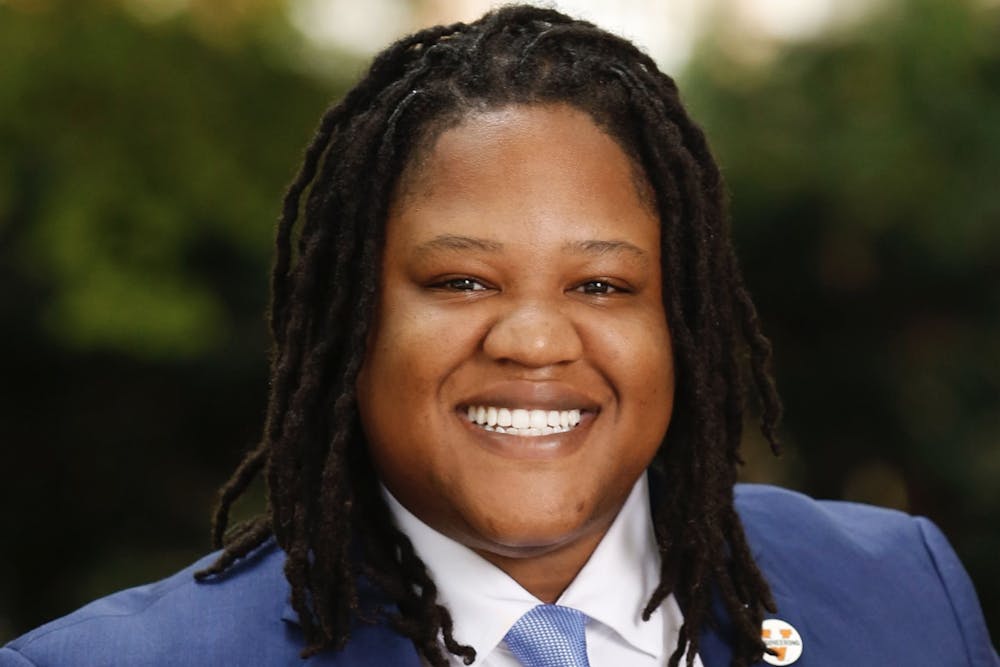Graduate Engineering student Collyn Clark is part of a recent push in the space industry to build a more inclusive workplace. Clark participated in Space Workforce 2030’s inaugural National Space Internship last summer, a 10-week program that matches undergraduate or graduate students with space corporations. As she pursues research in systems engineering on Grounds, she outlined the importance of making academic and professional opportunities in space exploration more inclusive for students in an interview with The Cavalier Daily.
Launched in 2022, Space Workforce 2030 is a growing coalition of space companies — including SpaceX, Aerospace Corporation and Boeing — that aims to diversify the space industry. Along with the National Space Interns program, the initiative offers K-12 programs that expose young women and minority students to professional opportunities in space and recently hosted its first National Space Day Friday. Clark said the initiative has ushered in a new era in space research.
“It’s the next wave of space travel,” Clark said. “Our grandparents kind of saw the first part of it, and now this is going to be that big second wave.”
During her internship, Clark worked with Aerospace Corporation, a nonprofit corporation that performs technical analyses for several government, commercial and civil customers. She originally interned with the corporation in 2022 through a GEM Fellowship, which provides funding and internship opportunities for minority graduate students in STEM fields. Clark said both the GEM Fellowship and SWF 2030 allowed her to pursue cutting-edge research with Aerospace Corporation, specifically risk prevention in satellite systems.
“Trying to get something that's a million dollars [and] has to go inch by inch all the way down a three mile road — [we] have to see where there could be potential bumps or hiccups,” Clark said. “As far as some of the satellite projects … I look at everything, how it works as a whole.”
Clark said she was inspired by programs such as the SWF 2030 internship, which she said make research opportunities more accessible to historically underrepresented groups in the space industry. The SWF 2030 coalition requires that each company pledge to increase the number of women and minority employees in their workplace and make their progress towards these goals available to the public. Clark said publicizing these statistics is a necessary measure to hold space companies accountable.
“As engineers, most of us are logical processors,” Clark said. “We’re people that work with numbers, and numbers tell a story. When you give people all the information, I can now see your story and make up my own opinion of it … Those numbers have to be told.”
Clark added that her SWF 2030 internship widened her exposure to engineering opportunities across the world. From meeting researchers in California to attending webinars led by globally renowned space professionals, Clark said the internship helped her pick up steam in her professional career. She said the events also encouraged her to advocate for more women and minority groups in the space industry.
“It's really dope to see women just taking charge and pushing those initiatives through,” Clark said. “I like the fact that [SWF 2030] is focused towards women and minorities so that we can get that fair shot, essentially.”
For Clark, welcoming a variety of perspectives will help revamp space exploration. She emphasized how current challenges in aerospace require input from a diverse team of researchers. As the majority of leadership positions in the space industry are currently occupied by men, Clark said it is imperative to increase the number of women in C-suite positions.
“We have to be able to kind of break up that stereotype … so we can push ourselves to the highest potential,” Clark said. “If you're only allowing certain folks with certain perspectives in, we're never going to really solve the bigger challenges that we have to face as a group of humans.”
For any students interested in studying engineering or pursuing jobs in space-related fields, Clark said programs such as the SWF 2030 internship can serve as launch pads for a career in the aerospace industry. She encouraged students to nurture their interests in space research by staying curious about the world.
“The one advice I would say to anyone who's trying to go through this same path [or] signing up for this particular program is just ask questions. Know that no question is a dumb question,” Clark said. “You never know how that's going to spark up a thought in somebody else. So always keep that curiosity alive.”
As she and her peers aid in new developments in space research, Clark expressed hope for the rising generation of space leaders. She said programs such as SWF 2030 and the GEM Fellowship are never out of reach and urged any student interested in aerospace research to seize similar opportunities.
“I'm always a big believer of ‘until you hear a no, the answer could be yes.’ So, always try,” Clark said. “Always try something. Just put your name in the hat.”







